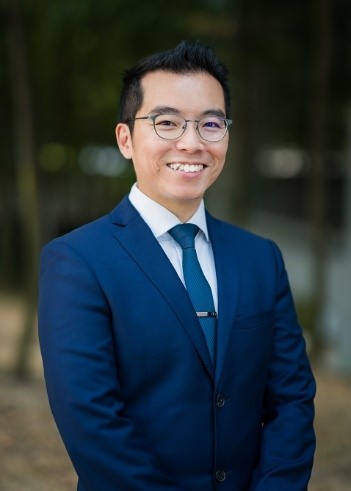Dr Yeo Tee Joo
MBBS, MRCP (UK), MMed (Int Med), MCI (S’pore)
My journey

I count myself extremely fortunate to work in the National University Heart Centre, Singapore (NUHCS) where over the years I have encountered many selfless supervisors and mentors. All of them had no qualms in supporting a junior staff like myself in research, and I hope to pay it forward as I move forward in my career.
My journey began as a junior registrar in Cardiology, when I participated in the Singapore Cardiac Society Annual Scientific Meeting Young Investigator Award competition, under the supervision of A/Prof Ronald Lee. With his guidance and patience, I managed to clinch 2nd place that year.
Further in my registrar career, my ideas on biomarkers and the athlete’s heart were fully supported by A/Prof Mark Chan and Prof Mark Richards, both financially and academically. I was able to complete a pilot study from scratch, including conceptualisation, getting ethics approval, recruiting subjects and data analysis. It also set the tone for my future projects.
My first formal manuscript (on iron deficiency in heart failure) was made possible by Prof Carolyn Lam (now with Duke-NUS). I was able to analyse data from a multi-centre registry, then write it up with full backing. It has since opened many doors, including being invited as a site-PI for an international multi-centre randomized controlled trial.
During my time overseas for subspecialty training at the Toronto Rehabilitation Institute for Cardiac Rehabilitation (under Dr Paul Oh), and St George’s University, London for Sports Cardiology (under Prof Sanjay Sharma), I had the opportunity to participate in writing international consensus documents, as well as experience how systematic research contributes to shaping new guidelines and recommendations.
It is fascinating to see how research can truly shape the way we practice medicine and how it can supplement available evidence. Instead of looking from the outside, you realise that research can actually put you in the driving seat, with advances and changes in your respective field.
My clinical research focusses on 2 main topics:
- Cardiac Rehabilitation
– I am keen to utilise technology to minimise barriers and improve outcomes and participation rates in cardiac rehabilitation
- Sports Cardiology (athlete’s heart)
– I have set up a registry of Singapore National athletes that I hope will provide more insights into the electrical and structural changes in Asian athletes
Career
It is still early days, and I have just applied for my first NMRC grant (Transition Award) for a Cardiac Rehabilitation project.
I hope to continually explore new and innovative methods for delivery of cardiac rehabilitation that will benefit more than 85% of eligible patients who do not participate currently.
It is my wish to raise the profile of cardiac rehabilitation (be it amongst patients, healthcare professionals and even the public) and carry out multicentre research projects that will eventually help in national (perhaps even regional) guidelines.
For sports cardiology, I hope to contribute more evidence on the Asian athlete’s heart, given current recommendations are based on Caucasian and Black athletes predominantly.
This information can also be extrapolated to benefit more populations such as the conscript military and master athletes.
The importance of a good mentor, and how my mentor has supported me
A good mentor is key to provide guidance, support and direction in your career path, having taken multiple or repeated routes themselves. They will lift you up when you are down, and give you an additional boost when things are on the right track. For juniors looking toward a career in research, I would advise you to cast your net wide with regard to both collaborators and supervisors / mentors. Build relationships, forge bonds and get to know more people. Ever since I first dabbled in research as a junior registrar, A/Prof Ronald Lee has continued to guide me along the way. His track record and productivity are extremely impressive and he remains cognizant of the challenges faced by junior researchers. Knowing when to be firm and when to take a step back is something that he does very well, and I am truly appreciative of his support over the years.

